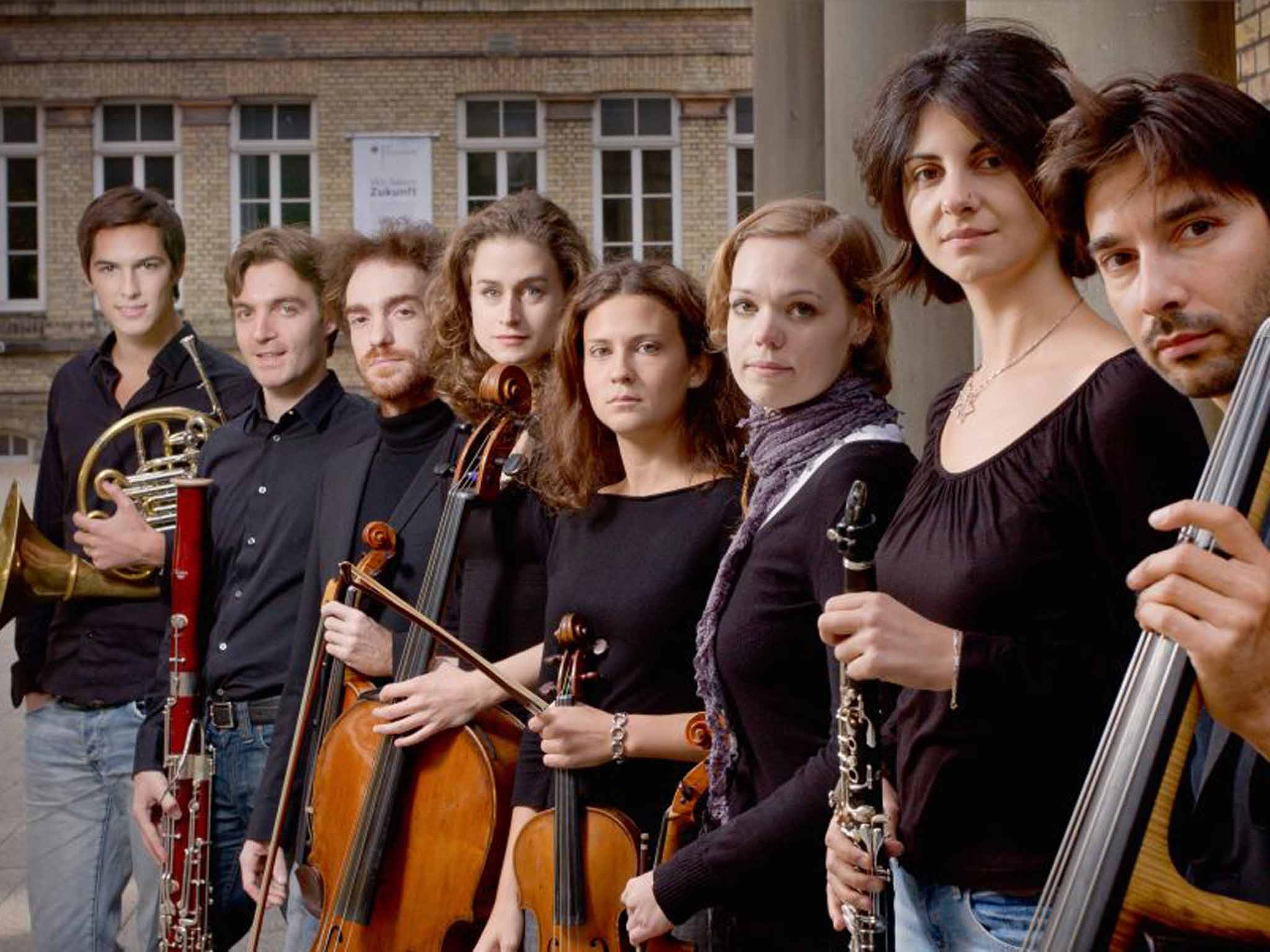Spira Mirabilis: the orchestra without a conductor
Jessica Duchen attends an odd rehearsal

In a sports centre in Formigine, a quiet Italian town near Bologna, I am listening to an orchestral rehearsal unlike any I've heard before. Around 40 musicians sit together in a closed circle; in the centre is… nobody. This orchestra, Spira Mirabilis, has no conductor. Instead, the passionate young performers, from all over Europe and beyond, take equal responsibility for the music they play. They could claim to be the world's most democratic orchestra.
Don't jump to the conclusion that this model is going to put conductors out of a job. It is a very particular way of working; it takes much longer to prepare a piece of music (indeed, Spira usually tackles only one work at a time); and without a very careful, sensitive handling of the group dynamic among 40 players – let alone a full symphony orchestra double that size – it would be difficult to get anything off the ground. Chances are that Spira will remain exceptional. But there's no doubt, listening to them, that exceptional they are indeed.
This week British audiences have the chance to see the results for themselves when Spira come to Aldeburgh. Here it gives the world premiere of a new work written for it by the British composer Colin Matthews – suitably entitled Spiralling – alongside Britten's Nocturne.
It's now 7pm – and over the past four hours the musicians have rehearsed the new Matthews piece intensively. Taking the music to pieces, they apply meticulous practice techniques that few orchestras ever have time to try. It's possible they only stop because it is closing time at the venue.
The members mostly play in other top-level orchestras, but spend six or seven intensive periods per year, a week or so at a time, on Spira's projects in Formigine or abroad. Formigine loves them so much it has built a new auditorium bearing their name. "Spira Mirabilis" means "marvellous spiral" and refers to a geometric figure that displays "self-similarity"; ie the whole is the same shape as one of its parts.
The orchestra was founded there seven years ago by a core group who shared a dream. "Some of us had known one another since we were students," says Spira's leader, the violinist Lorenza Borrani, who also leads the Chamber Orchestra of Europe. "But we found that now we were in the profession, there was no time to study the music in depth. We wanted to find time and space to continue to study; to meet, to learn and to rehearse together; and then to share music with an audience. But performing is not the point of Spira. It is more like a musical laboratory."
Most orchestras give the maximum number of concerts on the minimum number of rehearsals. Spira does the exact opposite. The horn player Francesco Bossaglia remarks: "Eighty per cent of what we do here is for ourselves."
A "democratic orchestra", though, sounds like a contradiction in terms. Other conductorless orchestras do exist, but are not plentiful; the figure of the maestro on the podium, controlling obedient players before him, remains prevalent. Dispensing with that model might sound desirable, but is not without its problems.
Not least, learning a newly composed piece is more difficult without a conductor. The players temporarily enlist a metronome to keep time; and Borrani holds proceedings together, fulfilling from the leader's chair a large chunk of a conductor's job. "Someone has to," the others agree.
"We had to learn how to rehearse without a conductor," says Borrani. "We don't want the leader to take the role as conductor, otherwise there's no point – but the important thing is that we have a way of working on which we all agree." As the rehearsal continues, more players speak up, offering ideas, asking questions, requesting passages to work on. "I'd compare Spira to playing chamber music," says its only British participant, the double-bassist Billy Cole. "It's a collaborative, constructive way of working. The number one thing is listening to each other." The viola player Simone Jandl adds: "It takes the playing to a whole different level."
This modus operandi would not suit all musicians. For one thing, nobody is paid, though living costs are covered (players stay with local families or share hotel rooms, while meals are provided by a friendly restaurant). The willingness to accept this model tends to be seen as a mark of commitment. "Whatever other work I'm offered, I would never cancel attending a Spira project," Borrani says. "You give your most valuable time – your free time – to Spira. It competes with your love life!"
"I think you need a certain level of maturity to work this way," says the oboist Maria Alba Carmona Tobella. "I find the quality of rehearsal amazing, because the work is done with respect for each other."
Sure enough, I sense I'm witnessing an environment of mutual trust, rather than the frustrating schoolchild-teacher type of relationship that can sometimes evolve between orchestras and conductors. Nobody is cowed or clock-watching; it is OK to nip to the loo if you have to; pointing out an error is taken as a learning experience for the collective good, rather than as an insult; and every player can access the full score of the piece electronically. "Ideally, every musician should study as a conductor would," says Borrani. "By the end of a project every one of us should be able to conduct the piece."
So Spira Mirabilis is not merely an orchestra without a conductor, but an orchestra of 40 potential conductors. And as finally they play through the music on which they have slogged all afternoon, the sound is a glory.
Spira Mirabilis, Snape Maltings Concert Hall, Aldeburgh (01728 687 110) Thursday to Sunday
Join our commenting forum
Join thought-provoking conversations, follow other Independent readers and see their replies
Comments
Bookmark popover
Removed from bookmarks